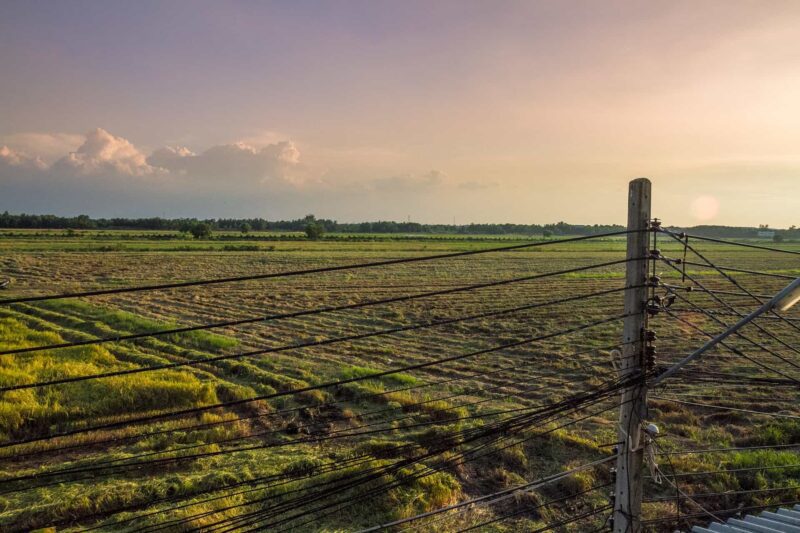Sometimes it just takes a spark to ignite action.
That was the case for The Isaan Record, an online news magazine that focuses on telling stories about social, political and environmental issues in the impoverished northeastern region of Thailand known as Isaan.
In 2018, The Isaan Record was awarded a grant from Internews’ Earth Journalism Network to carry out a series of environmental journalism trainings for Thai journalists and hold public forums on climate change, environmental justice and human rights.
The news outlet ended up organizing a four-day environmental journalism workshop on landfill and wastewater management that generated great interest among the reporters who participated.
Following the workshop, a reporter from The Isaan Record itself began investigating reports that wastewater discharge from a Thai landfill was polluting farmland around the site in Warin Chamrab district in Ubon Ratchathani Province.
“Our reporter conducted several interviews with community members, local authorities and environmental experts for this story,” said an editor at The Isaan Record.
A follow-up interview with the regional environmental office in District 12 of Ubon Ratchathani Province prompted a survey of the surrounding water sources, added the editor, who asked not to be named due to security concerns.
Praderm Phakkaew, director of the regional environmental office, confirmed in an interview that he first heard about the potential pollution problem when a reporter from The Isaan Record contacted him.
Phakkaew and a team then visited the site and carried out water tests at the landfill’s water treatment area. They found that the Biological Oxygen Demand (BOD), a common measure of water pollution, exceeded normal levels. While moderately clean rivers typically have a BOD of 5 mg/L or less, these water tests revealed BOD levels of 83.6 mg/L, indicating considerable pollution from organic waste.
At the time, some local farmers were using wastewater from the landfill to irrigate their farms in the belief that it contained nutrients that help rice grow, similar to organic fertilisers. However, academics warned that the wastewater could be contaminated with lead, mercury and other heavy metals that are damaging to health.
“[The test] results exceeded safe levels of pollutants,” the editor at The Isaan Record confirmed. “In consequence, the landfill was banned from discharging water … into surrounding farms.”
Indeed, the regional environmental authority ordered the district government to stop discharging wastewater from the landfill into public areas, since it contravened local regulations. The authority confirmed to EJN that the issue is now resolved.
In November and December 2018, The Isaan Record published the reports that sparked the tests on its website. You can read them in Thai:
- น้ำเสียจากบ่อขยะคือปุ๋ยเพื่อนาข้าวชั้นดีจริงหรือ?
- ชาวชุมชนใกล้บ่อขยะวารินฯ อุบลราชธานีไม่กล้ากินปลาในหนองน้ำ.
(Banner photo: Thai rice field. Credit Pixabay/CC)
